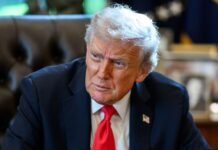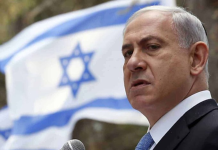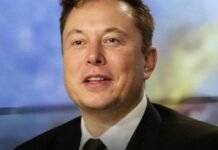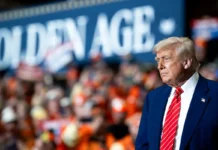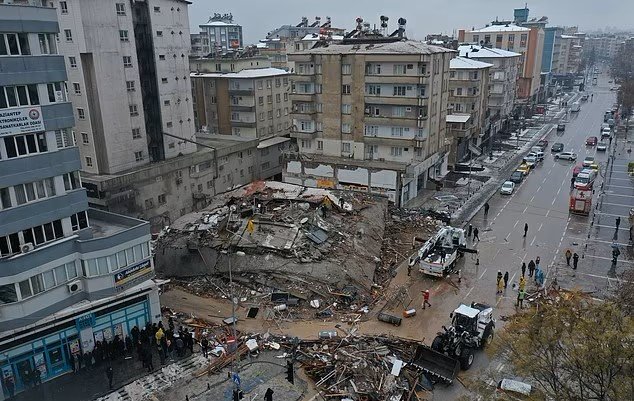Russian president, Vladimir Putin, on Wednesday 23 October welcomed several Heads of African countries, including Nigerian President, Muhammadu Buhari and other African leaders to the beautiful Black Sea city of Sochi, Russia for a two-day inaugural Russia-Africa Summit and Economic Forum.
Buhari is accompanied to the summit by a retinue of officials including Minister of Foreign Affairs, Geoffrey Onyeama; Minister of Trade and Investment, Adeniyi Adebayo; Minister of Mines and Steel Development, Olamilekan Adegbite and Minister of State, Petroleum, Timipre Sylva.
Over the past decade, the African continent has become a battleground for geo-strategic competition involving China, the US, and the EU, which compete with each other for military access, economic superiority, and soft power supremacy.
Countries like India, South Korea, and Gulf monarchies have interests in Africa too. Russia, which is a kind of late-comer to the party however has the advantage of old ties in the region and touts itself as an ideology-free pragmatic partner that wouldn’t leverage its offers for any geopolitical allegiances.
“We have something to offer our African friends“, Russian President Vladimir Putin said in a recent interview before the summit. “We aim, together with our African partners, to uphold common economic interests and protect them from unilateral sanctions, including by reducing the share of the dollar and switching to other currencies in mutual settlements.”

The three-day event will see more than 3,000 delegates from across Russia and Africa discuss an array of topics from nuclear energy to mineral extraction and consummate several bilateral deals on trade and technology.
All 54 African states sent a representative to the meeting with 43 heads of state or government attending.
Putin is aggressively trying to expand trade with the continent. “We currently export to Africa $25 billion ($22.5 billion) worth of food — which is more than we export in arms, at $15 billion. In the next four to five years I think we should be able to double this trade, at least,” he said.
Areas of cooperation
Russia has dominated arms sales to Africa but this time, Putin has promised further African cooperation without “political or other” interference. This comes at a time that concerns are growing about Africa’s dependence on China.
In addition to “military and security cooperation” with Africa, Putin also pledged Russian commitment to combat the Ebola virus with aid, and the training of “African cadres” by Russian universities.
“Joint projects are underway in extractive industries, agriculture, healthcare and education,” Putin said in his opening remarks.
Another area where Russia has an edge over the competition is civilian nuclear technology. Egypt’s first nuclear power plant El Dabaa is being built by Russian engineers and funded by a Russian loan. Earlier in April Ethiopia agreed to host a Russian nuclear excellence center, with plans for a Russian-designed nuclear power plant on the table.
There is also the traditional article of Russian trade in Africa: weapons. Moscow currently has arms trade agreements with over 30 African nations. Egypt is about to launch license production of Russia’s advanced T-90 main battle tanks. Angola in April had received the last batch of the 12 upgraded Sukhoi Su-30K fighter jets, which it bought a few years ago.
Russia’s soft power on the rise
Russia has a less tangible edge over some of its competition in Africa, since it has no toxic historic colonial baggage. In fact, Soviet Union supported pro-independence movements throughout Africa as European nations were withdrawing from it. It was, of course, part of the Cold War ideological confrontation with Washington, but it built some goodwill that comes in handy today.
In the 1960s Moscow gave free education to thousands of Africans. Soviet-trained engineers and technicians were essential for manning Soviet-constructed infrastructure in African nations, while Soviet-trained officers commanded African troops equipped with Soviet-supplied hardware. A similar trend emerged today..
Russia’s current influence in Africa, of course, is a far cry from what Soviet Union used to have at the peak of its power. And it’s not like Moscow wants to play a superpower overlord again. But it sees a place for itself as a power that African nations can turn to when it has problems it can’t solve on its own, be they domestic or foreign
“What we aim for is not to ‘redistribute’ the riches of the continent, but competition for cooperation with Africa,” Putin said in the interview. “The important thing is that it stays civilized.”
Russia had played a more crucial role in the continent during the Soviet era, supporting independence movements and training government leaders in former Soviet client states such as Angola and Ethiopia.
Moscow’s relations with Africa deteriorated after the fall of the Soviet Union in 1991, with China taking over as the continent’s key foreign business partner.
In 2000, Beijing established the Forum on China-Africa Cooperation, pledging tens of billions of dollars into Africa.




